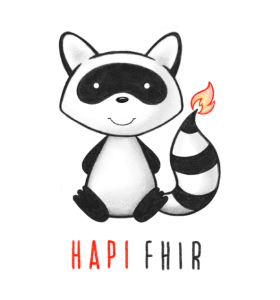| CommCare | 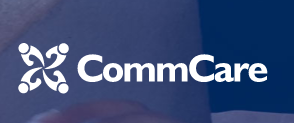 Image Removed Image Removed
| CommCare | CommCare allows you to build custom solutions without compromising on the unique needs of your team.
Whether you’re evaluating a program or supporting frontline workers, CommCare can help. CommCare allows you to: - Track data
- Work offline
- Empower end-users
- Start small and scale
| Demo Demo | | Application | Links to Software | Release Dates | Software Description | | Links to Software overviews, demonstrations, impact stories and implementations. |
|---|
Interoperability Layer | 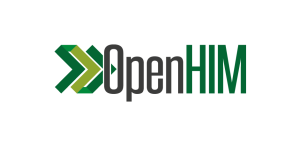 Image Removed Image Removed
| OpenHIM - GitHub Docker: Open Health Information Mediator (OpenHIM) is a middleware system that aims to enable easier interoperability between disparate health information systems; essentially this piece of software allows difference systems to talk to each other and exchange information. | Demo Terminology Services | 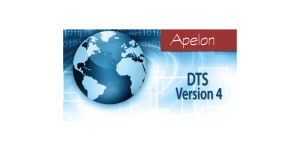 Image Removed Image Removed
| DTS Web site with Links to software | Distributed Terminology System (DTS) is an integrated set of open source components that provides comprehensive terminology services in distributed application environments. DTS supports national and international data standards, which are a necessary foundation for comparable and interoperable health information, as well as local vocabularies. Typical applications for DTS include clinical data entry, administrative review, problem-list and code-set management, guideline creation, decision support and information retrieval. | Client Registry | | MEDIC CR - GitHub | MEDIC Client Registry is a master patient index developed under Mohawk College's Natural Sciences and Engineering Research Council of Canada (NSERC) grant to build and a test version of the pan-Canadian Electronic Health Record System blueprint as prescribed by Canada Health Infoway. This reference implementation project is intended to assist developers in the development of Client Registry software, customer interfaces (as a test interface), in demonstration XDS infrastructures, or in staging environments. | | Client Registry |
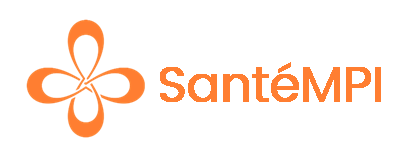 Image Added Image Added | Website |
| SanteMPI SantéMPI is a proven, next-generation, fully featured Master Patient Index/Client Registry (MPI/CR) platform designed to overcome barriers to leveraging person-centered data as a catalyst for transforming health systems. It is an essential national digital health infrastructure component that leverages unique identity to facilitate data consolidation, harmonization, sharing, and building health information exchanges (e.g., OpenHIE) to establish interoperability across multiple software solutions. It’s flexible architecture and online/offline capability also supports large scale registration programs such as COVID-19 vaccination registration, and birth and death updates to a CRVS. SantéMPI fulfills these essential roles by implementing all relevant interoperability specifications and requirements related to Client Registry in the OpenHIE specification, including Client Registry as a service, HL7 FHIR, and widely deployed legacy standards like HL7v2. SantéMPI is a PATH Digital Square MPI “global good”, that helps create and liberate the power of high-fidelity data to maximize return on investment for both existing and future digital health solutions. | Myanmar Canada, Jordan, Tanzania, and Southeast Asia | SanteMPI Video: What is a Master Person Index and what are its benefits | | 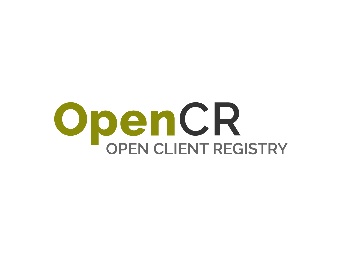 Image Added Image Added
| Website GitHub
|
| Open Client Registry (OpenCR) is an open source and standards-based client registry. Client registries use sophisticated record linkage processes to uniquely identify patients across multiple health information systems in facilities, pharmacies, lab systems, and elsewhere. As a critical component of an interoperable health information exchange (HIE), it allows patients to be tracked across facilities and decreases instances of duplicate and incomplete records, as well as interruptions in treatment. It is a necessary tool in public health to help manage patient safety and care coordination, monitoring, reporting, surveillance, and medical research. | Haiti Uganda | Impact Stories: Demo |
| Client Registry |
| OpenEMPI - Website |
| Open Enterprise Master Patient Index (OpenEMPI) is an open source implementation of an Enterprise Master Patient (EMPI) which is a repository that maintains a registry of all patients across an enterprise. An EMPI provides many benefits including: - Maintains a central registry of all patients and their demographics, assigning a unique identifier to each patient
- Eliminates duplicate patient registration entries that result due to changes in patient demographics (patient moved to another location), data entry errors during patient registration, or missing demographic information.
- Provides record locator service by enabling physicians across the enterprise to identify which health care providers a patient has visited
|
|
| Client Registry
Shared Health Record |
 Image Removed Image RemovedGitHub Open Client Registry (OpenCR) is an open source and standards-based client registry. Client registries use sophisticated record linkage processes to uniquely identify patients across multiple health information systems in facilities, pharmacies, lab systems, and elsewhere. As a critical component of an interoperable health information exchange (HIE), it allows patients to be tracked across facilities and decreases instances of duplicate and incomplete records, as well as interruptions in treatment. It is a necessary tool in public health to help manage patient safety and care coordination, monitoring, reporting, surveillance, and medical research. | Impact Stories: Demo | Electronic Medical Record | 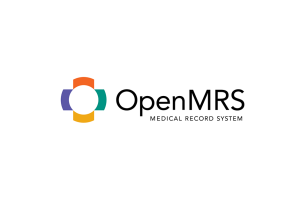 Image Removed Image Removed
| OpenMRS - GitHub Download from Website Product Dashboard (links to evolving initiatives' repos) | Open Medical Record System (OpenMRS) is a collaborative open-source project to develop software to support the delivery of health care in developing countries. OpenMRS provides an electronic medical record platform that allows a number of add-on modules to help OpenMRS function better for you. | Shared Health Record | NEW REFERENCE TOOL INVESTIGATION UNDERWAY
| Laboratory Information System | | SENAITE | SENAITE is an Open Source and web-based Laboratory Information Management System (LIMS) for enterprise environments, especially focused to behave with excellent performance and stability. The complexity and power of the LIMS works under a modern, intuitive and friendly UI that displays only the data you want to need to see. SENAITE is the brand for a group of Open Source solutions and the community supporting it. SENAITE includes the development of open source web-based LIMS applications and extensions, each geared towards different types of laboratories. | | Laboratory Information System |  Image Removed Image Removed
| OpenELIS Global - GitHub | OpenELIS (Open Enterprise Laboratory Information System) is an advanced laboratory information system based upon the APHL (Association of Public Health Labs) guidelines for best laboratory practice and accreditation in resource-limited settings. The OpenELIS Global software serves as both a business process framework and a technical solution for managing and connecting laboratory data across devices and systems for clinical and secondary use. It is built on open source web-based technologies, and uses international standards for terminology and data exchanges. | Demo | Health Financing Information Management819px300 | 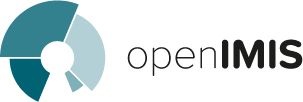 Image Removed Image Removed
| openIMIS | openIMIS is an adaptable open-source software tool for the digitalisation and efficient management of health financing workflows. Currently being used to manage a variety of health protection schemes, openIMIS offers seamless connections between beneficiaries, health service providers and payers. | Health Management Information Systems Facility Registry 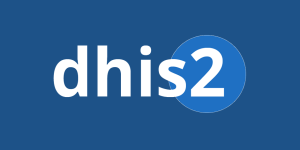 Image Removed Image Removed
| DHIS2 - GitHub | HAPI FHIR Google Group | April 8, 2015 | HAPI FHIR is a complete implementation of the HL7 FHIR standard for healthcare interoperability in Java. We are an open community developing software licensed under the business-friendly Apache Software License 2.0. HAPI FHIR is a product of Smile CDR. | US, Denmark, Canada, UK, Switzerland, Turkey, Italy, Japan, South Korea, Philippines, Australia, and more.. | Test Server | | Facility Registry | | https://healthsites.io/
Healthsites Github repo |
| The Global Healthsites Mapping Project is building a global commons of health facility data by making OpenStreetMap useful to the medical community and humanitarian sector. This open data approach invites organizations to share health facility data and collaborate to establish an accessible global baseline of health facility data. The project supports individual facility updates and publishes national lists of downloadable health facility data in accessible formats (GEOJSON CSV SHP). The API allows regional analysis and publishes a signature domain and service domain for each facility. https://wiki.openstreetmap.org/wiki/Global_Healthsites_Mapping_Project
https://data.humdata.org/organization/healthsites | Global / Every Continent 898888 healthsites
| | | Facility Registry | 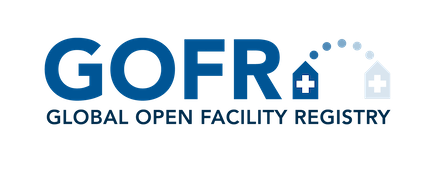 Image Added Image Added
| https://github.com/intrahealth/gofr |
| Global Open Facility Registry (GOFR) GOFR is a comprehensive FHIR-compliant platform for managing MFLs and other lists of facilities. It also provides a powerful reconciliation tool to de-duplicate and reconcile. GOFR can pull facility data from multiple data sources and is interoperable with DHIS2, iHRIS, and any FHIR server. It speeds up and improves the accuracy of developing and maintaining canonical lists of facilities for information systems and applications. |
| Demo | | Facility Registry | 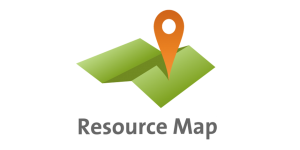 Image Added Image Added
| Resource Map | 2006 | Resource Map is an open-source tool free to use in the cloud or locally installed, that helps you make better decisions by giving you insight into the location and distribution of your physical infrastructure. With Resource Map, you and your team can collaboratively record, track, and analyze resources at a glance using a live map. | Southeast Asia, Latin America, USA, |
| Facility Registry
Health Management Information Systems |  Image Added Image Added
| DHIS2 - GitHub | 2011 |
| District Health Information Software (DHIS) is a highly flexible, open-source health management information system and data warehouse. DHIS provides routine data, semi-permanent data (staffing, equipment, infrastructure, population estimates), survey/audit data, and certain types of case-based or patient-based data (for instance disease notification or patient satisfaction surveys). |
| Facility Registry |  Image Removed Image Removed
| GOFR Facility Match | Global Open Facility Registry (GOFR)/Facility Match Facility Match analyzes, de-duplicates, reconciles, and manages lists of facilities to assist health officials in developing a registry of all unique health facilities in a country. Facility Match can pull facility data from multiple data sources and is interoperable with DHIS2, iHRIS, and any FHIR server. It speeds up and improves the accuracy of developing and maintaining canonical lists of facilities for information systems and applications. GitHub: https://github.com/openhie/facility-recon | Demo | Facility Registry |  Image Removed Image Removed
| ResourceMap - GitHub | Resource Map is an open-source tool free to use in the cloud or locally installed, that helps you make better decisions by giving you insight into the location and distribution of your physical infrastructure. With Resource Map, you and your team can collaboratively record, track, and analyze resources at a glance using a live map.| 73+ low and middle-income countries. | Demo | Facility Registry
Health Worker Registry |  Image Added Image Added
| GeoPrism Registry Website
|
| Location and time are dimensions that bind information together. GeoPrism Registry uses semantic technologies to enable data and information from multiple organizations to be properly contextualized in both space and time to support geographically based planning, decision making, cooperation and coordination among agencies of federal governments, local governments, non-profits, and the private sector. Collaboration across sectors is needed to promote public health, economic development, environmental protection, flood zone research, disaster recovery, education, agriculture, infrastructure, and other public and private services. | Laos, Mozambique, USA | Demo Site | | Health Financing Information Management |  Image Added Image Added
| openIMIS | 2012 | openIMIS is an adaptable open-source software tool for the digitalisation and efficient management of health financing workflows. Currently being used to manage a variety of health protection schemes, openIMIS offers seamless connections between beneficiaries, health service providers and payers. | DR, Chad, Tanzania, Nepal, Cameroon | New Demo Introductory Video Demo | | Health Worker Registry | 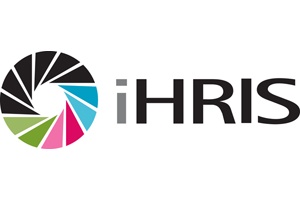 Image Modified Image Modified
|
iHRIS.org Docker Hub GitHub for Docker |
| 2005 | Open Source Human Resource Infomation System (iHRIS) is an open-source software that supplies health-sector leaders with information to track, manage, and plan the health workforce. iHRIS captures high-quality data on health worker numbers, skills, qualifications, locations, and more. |
Interoperability Service | Entity Matching Service | The purpose of the Entity Matching Service is to enable matching in a single list of patients, health workers, facilities or other entities or to find potential matches between two lists of the same entities. | More than 20 countries |
| | Interoperability Layer |  Image Added Image Added
| OpenHIM - GitHub Docker:
| 2021 | Open Health Information Mediator (OpenHIM) is a middleware system that aims to enable easier interoperability between disparate health information systems; essentially this piece of software allows difference systems to talk to each other and exchange information. |
| Demo
| | Interoperability Service | OpenInfoMan | GitHub Docker Hub | 2013 | OpenInfoMan is XQuery and RESTXQ based implementation of the Care Services Discovery (CSD) profile from IHE which implements the following actors and transactions: Info Manager : Find Matching Services (Ad-Hoc and Stored) [ITI-73]
Query for Updated Services Transaction [ITI-74]
Services Directory : Query for Updated Services Transaction [ITI-74]
OpenInfoMan has been developed as part of OpenHIE and is intended to be the engine behind the CSD compliant Health Worker Registry and to be incorporated in OpenHIM. |
| Terminology Management Service | | OCL Terminology Service GitHub Repository
Terminology Service in OCL Online
Documentation OpenHIE Metadata Clearinghouse | OCL is an open-source terminology management system that operates in the cloud. A centrally hosted instance is hosted by the OpenHIE and OpenMRS communities and is available here: openconceptlab.org | Demo | Product Catalog (aka Registry) | Product Catalog Management Tool (PCMT), or simply Product Catalog | | More than 20 countries |
| | Interoperability Layer, Workflow/Automation Engine | | Github: OpenFn/Lightning OpenFn & Lightning Documentation site
OpenFn Community
| 2014
(Lightning release: 2022) | The OpenFn Integration Toolkit is a suite of open-source technologies that are used to integrate systems and automate business processes, enabling interoperability and secure workflow automation. From simple audit-trail generation to complex, multi-step workflows, OpenFn can orchestrate, automate, and translate communications between any and all information systems in a federated health information systems architecture. OpenFn is a recognized Digital Public Good and Digital Health Global Good. OpenFn/Lightning is a the latest extension to the OpenFn DPG–a fully open source workflow automation platform. Currently in alpha and to be released in Q4 2022) Lightning provides a secure, user-friendly, and fully open-source web application to build, run and monitor/audit workflows all in one place. It is designed for governments or NGOs who need a flexible solution which enables them to integrate and connect any system and comes with fully-fledged user management and auditing capabilities. Lightning relies on the same tried-and-trusted core technology as the OpenFn Toolkit and iPaaS (in use since 2014) and comes with an improved, visual interface for building integrations. It is also compatible with OpenFn's 60+ adaptors, which are open-source modules for connecting with any REST API, databases, and commonly used apps in public health (incl. CommCare, DHIS2, and more). N.B. OpenFn.org also provides an enterprise integration platform-as-as-service (with a free tier) for users that do not have the in-house devops and IT-security capacity to self-host. Implementations are portable, and can be shifted between SaaS and open source variants at any time. | 5 continents | Lightning Demo
What is OpenFn?
| | Interoperability Service | Entity Matching Service |
| 2017 | The purpose of the Entity Matching Service is to enable matching in a single list of patients, health workers, facilities or other entities or to find potential matches between two lists of the same entities. |
|
| | Point-of-Service |  Image Added Image Added
| CommCare | 2022 | CommCare allows you to build custom solutions without compromising on the unique needs of your team.
Whether you’re evaluating a program or supporting frontline workers, CommCare can help. CommCare allows you to: - Track data
- Work offline
- Empower end-users
- Start small and scale
| 2,000 projects across 80 countries | Demo Demo | | Point-of-Service (Electronic Medical Record) |  Image Added Image Added
| OpenMRS - GitHub Download from Website Product Dashboard (links to evolving initiatives' repos) | 2022 | Open Medical Record System (OpenMRS) is a collaborative open-source project to develop software to support the delivery of health care in developing countries. OpenMRS provides an electronic medical record platform that allows a number of add-on modules to help OpenMRS function better for you. | >40 Countries Map: Where we are | 1-min Intro video Global Goods Demo New: OpenMRS 3 Demo | | Biometric Identity Management |  Image Added Image Added
| Website | 2021 | The Simprints solution empowers organizations with the tools to overcome data challenges to: reach more beneficiaries, overcome data challenges, and create greater impact. We integrate biometrics into your existing mobile tools and workflow
By streamlining the Simprints system integration and operations, our tools help frontline workers focus on what matters most: delivering essential services for impact. |
| Background Demo | | Point-of-Service (Laboratory Information System) | | SENAITE | 2017 | SENAITE is an Open Source and web-based Laboratory Information Management System (LIMS) for enterprise environments, especially focused to behave with excellent performance and stability. The complexity and power of the LIMS works under a modern, intuitive and friendly UI that displays only the data you want to need to see. SENAITE is the brand for a group of Open Source solutions and the community supporting it. SENAITE includes the development of open source web-based LIMS applications and extensions, each geared towards different types of laboratories. |
|
| | Point-of-Service (Laboratory Information System) |  Image Added Image Added
| OpenELIS Global - GitHub |
| OpenELIS (Open Enterprise Laboratory Information System) is an advanced laboratory information system based upon the APHL (Association of Public Health Labs) guidelines for best laboratory practice and accreditation in resource-limited settings. The OpenELIS Global software serves as both a business process framework and a technical solution for managing and connecting laboratory data across devices and systems for clinical and secondary use. It is built on open source web-based technologies, and uses international standards for terminology and data exchanges. |
| Demo | | Product Catalog (aka Registry) |  Image Added Image Added
| productcatalog.io GitLab DockerHub | 2020 | PCMT is an open-source product catalog management system that aims to connect product catalogs in order to show a clear journey from manufacturer to patient. It establishes master data that includes GS1 identifiers, global categories, and mappings to local identifiers. This enables end-to-end visibility, allows shipments to flow between systems, and helps supply chains perform. | Ethiopia, Malawi, Rwanda, Zambia, GFPVAN | Demo - 5 min Full Demo - 15 min | | Terminology Services |  Image Added Image Added
| DTS Web site with Links to software |
| Distributed Terminology System (DTS) is an integrated set of open source components that provides comprehensive terminology services in distributed application environments, DTS interfaces implement all OHIE Terminology Services workflows and are FHIR-compliant with R4B. DTS provides access to national and international data standards, which are a necessary foundation for comparable and interoperable health information, as well as local vocabularies and mappings. Typical applications for DTS include clinical data entry, administrative review, problem list, value set, and code set management, guideline creation, decision support, and information retrieval. |
| Demo | | Terminology Management Service |  Image Added Image Added
Open Concept Lab | OCL Terminology Service GitHub Repository
Terminology Service in OCL Online
Documentation OpenHIE Metadata Clearinghouse |
| OCL is an open-source terminology management system that operates in the cloud. A centrally hosted instance is hosted by the OpenHIE and OpenMRS communities and is available here: openconceptlab.org |
| Getting Started with OCL Demo | | Logistics Management System |  Image Modified Image Modified
| openlmis.org GitHub DockerHub |
| OpenLMIS is a powerful, open source, cloud-based electronic logistics management information system (LMIS) purpose-built to manage health commodity supply chains |
Interoperability Layer, Workflow/Automation Engine | Github Documentation Site The OpenFn Integration Toolkit is a suite of open-source technologies that's used to integrate systems and automate business processes via interoperability and secure data transfer/manipulation rules called "jobs". From simple audit-trail generation to complex, multi-step process chains or workflows, OpenFn can both coordinate and translate communications between all the tools in a federated health information systems architecture. The toolkit includes OpenFn core, engine, microservice, devtools, and more than 50 different adaptors—connectors for the most commonly used APIs in public health, from CommCare to DHIS2 to OpenMRS. N.B. that OpenFn.org also provides an enterprise integration platform-as-as-service which is not fully open source, but that implementations are completely portable—they can be shifted between the SaaS and open-source variants at any time. | Demo |
|
| Library to Create Synthetic Personal |
Demogrpahic Demographic data
| Duplicate Generator | GitHub |
| The Duplicate generator is a libray to create synthetic personal demographic data such as given name, surname, date of birth and sex and introduce duplicates of those records with errors. Those data can be used to test or evaluate record linkage and deduplication algorithm. This project is a fork and an udpated version of the Freely Extensible Biomedical Record Linkage (FEBRL) dataset generator developed by Agus Pudjijono and Peter Christen in December 2008. For more detailed description please consult the website of the AUSTRALIAN NATIONAL UNIVERSITY(ANU) Department of Computer Science or see the paper: Accurate Synthetic Generation of Realistic Personal Information. In this version we upgraded the initial code to python 3.6 , added pandas, argparse and numpy, decoupled the configuration from the code and re-designed the library api to make it easy and simple to generate a customizable synthetic duplicate personal dataset. |
|
| | point-of-care system | PocketPatientMD (PocketPatientMD.com) 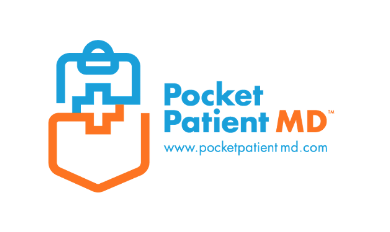 Image Added Image Added
| Website: PocketPatientMD.com | 2017-Present (New versions and updates continue to be released)
| PocketPatientMD is a digital health and electronic medical record platform focused on linking all stakeholders in the healthcare ecosystem from patients and providers to Ministries of Health, facilities, and organizations. PocketPatientMD is customizable, interoperable, multilingual, and includes online and offline capabilities to ensure it is a truly universal health record system. PocketPatientMD is permission-based to allow the creation of roles for staff, and currently available in 7 languages and beta in over 10 others. PocketPatientMD is focused on achieving UN SDG3. PocketPatientMD users own their data and research can be added, enabling real time data aggregation and analysis to improve cost and quality of care. PocketPatientMD is focused in markets where there is a lack of accurate health care information. PocketPatientMD provides training and support, and there is no cost to use the platform. You can learn more or contact us at PocketPatientMD.com | Global: Africa, Asia, Central and South America
*PocketPatientMD is available in English, French, Spanish, Portuguese, Arabic, Swahili and Vietnamese *PocketPatientMD is beta in 10+ other languages including Amharic, Kinyarwanda, Hausa, Igbo, Yoruba, Malagasy, Hindi, Russian, Indonesian, Malaysian, Filipino, and more | Website: PocketPatientMD.com |
|
|
|
|
|
|
|
|





